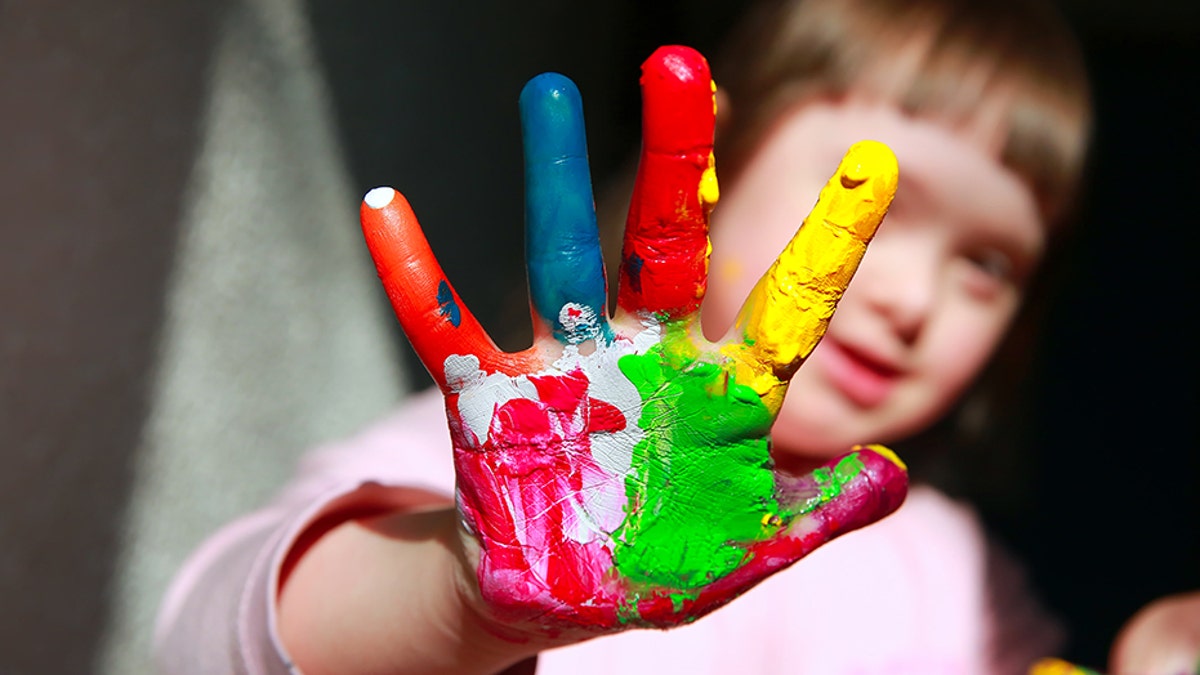
Cute little girl with painted hands (iStock)
There is a mystery behind people with intellectual disabilities. I find that in many ways that they are a presence of Jesus. We see their fragility, their pain – and yet at the same time, we can say that they speak of God. As we enter into relationships with them, they change us.
I spent a year living in community with a man named Andrew. One day, he went to see a cardiologist. When he came back, I asked him what had happened.
“The doctor looked into my heart,” he said.
“Well, what did he see in your heart?” I responded.
Andrew said: “He saw Jesus, of course.”
Then I said to Andrew: “What does Jesus do in your heart?”
And Andrew said: “Jesus rests there.”
It’s what the Gospels say. Jesus comes to live in our hearts. He needs to have places where he can dwell in this world – a world where he is being rejected.
This story seems especially timely on World Down Syndrome Day, which falls on Wednesday. I like to call people with Down syndrome “people of the heart.”
People who are not endowed with intellectual gifts have other unique and marvelous gifts of the heart, and can open us to love in a special way. They are not crying out for advancement or knowledge or power, but simply for a personal relationship of love that will give their lives meaning.
So really, at the first meeting I had with people with disabilities, what touched me was their cry for a relationship. Some of them had been in a psychiatric hospital. All of them had lived with the pain of rejection.
The words of Jesus to Peter at the end of the Gospel of John are: “Do you love me?”
So the cry of God saying, “do you love me?” And the cry of people who have been wounded, put aside, considered mad saying “do you love me?” come together.
We are all fragile people. Accidents and sicknesses are the reality. We are born in extreme weakness and our life will end in extreme weakness. But people want security. They want to have big bank accounts and all that sort of stuff.
We are a frightened people. And, of course, the big question is, why are we so frightened of people with disabilities?
A woman recently asked me what I was doing. And I said that I had the privilege of living with people with disabilities. And she said, “Oh, but I could never work with people like that.”
I replied: “Why not?”
And she said: “Well, I am frightened of them.”
Yet the weak have a wisdom that is profound in its simplicity. They can teach the strong to accept rather than fear the weakness and brokenness in their own lives. I am struck by how sharing our weaknesses and difficulties is more nourishing to others than sharing our qualities and successes.
Let me tell you the story of Francis, a young boy with an intellectual disability, who was making his first communion in a church in Paris. After the service there was a wonderful family celebration. His godfather and uncle went over to Francis’ mother and said, “Wasn’t it a beautiful service? The only sad thing is that he didn’t understand anything at all.”
Tears came into the eyes of the mother, and Francis recognized them. He said to her: “Don’t cry mummy, Jesus loves me just as I am.”
